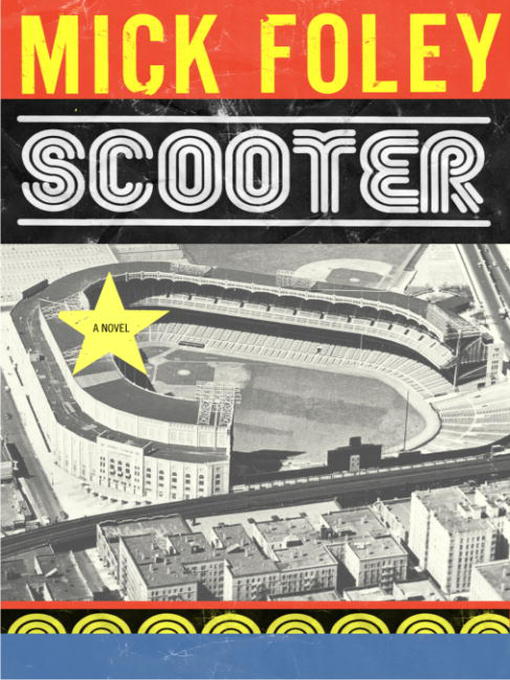
Scooter
کتاب های مرتبط
- اطلاعات
- نقد و بررسی
- دیدگاه کاربران
نقد و بررسی

May 30, 2005
Former pro wrestler Foley proves his authorial chops with this hard-edged coming-of-age tale (after Tietam Brown)
about a turbulent childhood amid the decay of the Bronx in the late '60s and '70s. Scooter Riley's comfortable existence disintegrates in sudden, steep drops, mirroring the fall of the Bronx as it transitions from working-class stability to urban desolation. Scooter's dad, a drunken yet good-hearted Irish-American cop stuck on the Harlem beat, accidentally shoots his eight-year-old son in the leg during a beer-fueled 1969 Mets-Orioles World Series fracas, saddling the boy with a bad limp. Growing up on the streets of the Bronx, Scooter weathers racial violence, dabbles in heroin and eventually turns his rage on his father, crippling him with a baseball bat. Soon, mom runs off, and the tense household, already beset by family secrets, struggles to regain traction. The family—Scooter also has a mentally handicapped younger sister—manages to rally in the late 1970s when they move to Long Island. Scooter, named after Yankee shortstop Phil Rizzuto, ultimately finds a form of salvation in his life's passion: baseball. With adroitly drawn characters, dark humor and a plot that never loses momentum, Foley shapes a story of resilience and courage.

June 15, 2005
In his second novel (after "Tietam Brown"), renowned WWF wrestler Foley presents a coming-of-age story about Scooter Reilly, named for Yankee MVP ball player turned announcer Phil Rizutto. Raised in New York City's deteriorating Bronx and later on suburban Long Island in the 1960s and 1970s, Scooter grows up with a father and a grandfather who revere baseball and especially their beloved Yankees. For Scooter, however, it's not baseball itself but its small moments of drama that seem to matter. Incidents both humorous and horrific occur in Scooter's own life related to this sport, which change the lives of the people involved forever. Armed with the mantra an eye for an eye, Scooter is a strong-willed, resourceful underdog when facing adversity (and there is plenty here) or when reaching for a goal. In fact, most of the male characters are persevering and dedicated, while the women are either all good or all evil. Foley writes with a throbbing intensity as he maneuvers the story's twists and turns, and his graphic depictions of physical brutality and suffering give the novel a strange, driven edge. Recommended for larger public libraries and elsewhere if baseball fans abound. -Maureen Neville, Trenton P.L., NJ
Copyright 2005 Library Journal, LLC Used with permission.

June 1, 2005
Former wrestler Foley's first novel, " Tietam Brown" (2003), was an energetic, frustrating mess that nonetheless left some doubt as to whether the hackneyed narration was the protagonist's or the author's problem. With " Scooter," the question is answered: it's Foley who's wrestling with language--and often losing. The plot, a first-person coming-of-age story about a physically disfigured kid fighting his dysfunctional father, is remarkably similar, too. This one's set in New York City during the 1960s and '70s, and though Foley tries to make the city a third character, his digressions read like cribbed history notes footnoted with a laundry list of pop-cultural touchstones. The through-line is frayed, the point-of-view is fractured, and the reality often broken: Foley has yet to learn the art of the telling detail (he prefers to summarize everything, sometimes twice). Readers may actually become nostalgic for " Tietam Brown," which at least featured a clear conflict and one unforgettable character. But, again, expect demand because of print run and publicity--and because the author once terrorized the ring, not readers.(Reprinted with permission of Booklist, copyright 2005, American Library Association.)

























دیدگاه کاربران